DSCC Invites Teens to Take Part in New Project to Improve Mental Health Support

The B.E.S.T. research study looks at how care coordination services that include mental health support can benefit teens with intellectual and developmental disabilities.
Adolescence can be a challenging time for teens with intellectual and developmental disabilities (IDD).
It’s not unusual to feel sad, stressed or overwhelmed.
A new research study opportunity can help teens with IDD learn how to manage these feelings and cope with times of change.
The study is called Behavioral Health Stratified Treatment (B.E.S.T.) to Optimize Transition to Adulthood for Youth With IDD.
The B.E.S.T. study wants to understand if care coordination services that include mental health programming can help teens with IDD live happier and healthier lives.
The study is available for some teens and young adults enrolled with the University of Illinois Chicago’s Division of Specialized Care for Children (DSCC). Eligible DSCC participants must be enrolled in DSCC’s Core Program or Connect Care Program. (Please note that DSCC teens enrolled in the Home Care Program are not eligible to participate.)
All DSCC participants receive care coordination services. The B.E.S.T. study looks at if it’s more beneficial for DSCC teens to receive care coordination that also includes programs to help with mood and stress.
The B.E.S.T. study is a free and voluntary project. Teens can join the study if:
- They currently have a DSCC Care Coordinator and are enrolled in DSCC’s Core or Connect Care programs.
- They are between 13 and 20 years old.
- They have an intellectual or developmental disability.
- They can comprehend at a fourth-grade or similar level.
- They can read and speak English.
- They have a computer, tablet or smartphone they can use to access the internet.
- They have permission from their parent, caregiver or guardian (if they are under 18).
More than 200 DSCC participant families have enrolled in the study as of June 2023.
“I am thankful for the B.E.S.T. program,” one parent participant shared. “It’s helping (my daughter) voice feelings. I hope the program continues for her.”
The B.E.S.T. study team developed the project with input from a group of B.E.S.T. Study Scholars. These scholars are teenagers with IDD who tested and reviewed all of the B.E.S.T. study materials.
“I loved working on the B.E.S.T. project because I got to share my experiences as a teen with a disability,” B.E.S.T. Study Scholar Erin Compton said. “Sometimes people with disabilities have health problems, but we aren’t going to let that stop us.”
Erin also praised the B.E.S.T. study team, led by Project Director Iulia Mihaila, Ph.D.
“I loved working with Iulia and the team because they respected me and all the other self-advocates on the project as leaders,” she said. “B.E.S.T. has a really good team, and I loved being a part of it.”
Erin’s mom, Diane Compton, said the project is a great opportunity to include the voices of those with disabilities.
“The B.E.S.T. team really excelled at including the voices and experiences of all who worked on the project,” she said. “It gives me such hope for the future that organizations are creating these opportunities for young people.”
Iulia said Erin and all the B.E.S.T. Study Scholars provided “immeasurable value” to the project.
“They gave us direction on how to make our work more relevant to teens with IDD and their families. Our work would not have been as strong without them,” Iulia said.
Teens who join the study will be put into one of two groups:
- Group A will receive care coordination services as usual from their DSCC Care Coordinator.
- Group B will receive care coordination services and mental health support from the B.E.S.T. team. This support is based on each teen’s needs and can include:
- Mental health education
- Online group sessions
- Caregiver education and support
The study is a virtual program and should last for two years.
The B.E.S.T. study is a partnership between DSCC and the University of Illinois Hospital and Health Sciences System (UI Health), the University of Illinois Chicago’s (UIC) Department of Disability and Human Development and the UIC Department of Pediatrics.
The principal investigators are Dr. Benjamin Van Voorhees and Dr. Kristin Berg.
The B.E.S.T. study team includes mental health professionals from Illinois, California and Massachusetts. They are all working together to find a way to promote the health and well-being of teens with IDD.
You can learn more information for both teens and parents/caregivers on the B.E.S.T. study website.
If you would like to join the study or have questions, please email the B.E.S.T. study team at beststudy@uic.edu or call (833) 732-5778.
If you choose to join, you and your family can support research that helps other teens and families.
Teens will have the opportunity to learn helpful coping skills for their moods and emotions. Parents and caregivers can gain information on how to support their teens.
Both parents/caregivers and teens must agree to be in the study. (Note that if a teen is their own legal guardian, they can participate alone or with a parent/caregiver if they choose.)
Those who join will be compensated for their time.
We’re excited to be a part of this important research project!
Chicago Care Coordinator Earns DSCC Merit Award
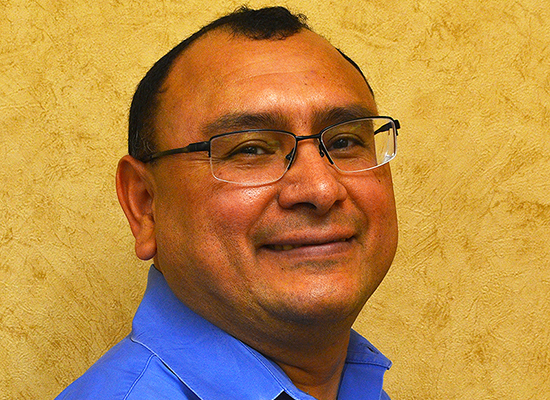
David Martinez honored for his dedication to supporting Illinois children with special healthcare needs and their families
David Martinez is the 2022 recipient of the Merit Award from the University of Illinois Chicago’s Division of Specialized Care for Children (DSCC).
The award recognizes exceptional employees for outstanding dedication and service to Illinois children with special healthcare needs and their families.
David is a Care Coordinator in the Chicago Central Office. In this role, he helps families develop personalized care plans for their children’s unique needs and connects them to the right services and resources.
“David has a remarkable ability to partner with our participant families and empower them to help reach their full potential,” DSCC Executive Director Thomas F. Jerkovitz said. “He works with families from a variety of cultural backgrounds and helps them feel understood and able to navigate the systems involved in their child’s care.”
David’s Chicago teammates say he has a talent for helping families and working “magic” in situations where others might not see a way.
“He is culturally sensitive, proactive and able to put himself in other people’s shoes so that he can better understand their situation and how best to partner with them to find a solution,” said Assistant Director of Research and Practice Initiative and former Chicago Central Regional Manager Patricia Perez.
David is a licensed clinical social worker. He grew up in El Salvador and studied criminal justice after coming to the United States.
He provided substance abuse programs at the Cook County Jail before deciding to pursue social work. This decision stemmed from his desire to help others and make an impact on families as early as possible.
David worked in mental health before joining DSCC in April 2016. He says he is honored to work for DSCC and with his amazing colleagues and managers in the Chicago Central office.
“Building strong relationships with my co-workers and the families we serve energizes me every single day,” David said. “Our families’ needs go beyond just medical. Every day is an opportunity to look at a situation from all different aspects and find a solution that can meet their needs. Sometimes it’s as simple as just listening.”
David said his DSCC career has helped him learn about many different cultures and that care coordination is not one-size-fits-all.
“Meeting the family where they are – that’s my starting point,” David said. “When I’m meeting with families, I tell them we are a team.”
David has helped achieve many successful outcomes for his participant families. In early 2022, he secured a $36,000 grant through the Guaranteed Rate Foundation to purchase and install a vehicle wheelchair lift in a participant family’s van and to make their bathroom wheelchair accessible.
But David says his proudest achievements are the relationships he builds with families.
“It would be impossible for me to deliver my passion in social work without having a relationship with families and open communication,” David said. “To be able to talk to families on a monthly basis and help them navigate through issues in life, that is my biggest accomplishment — having the trust the families place in me and DSCC.”
Our DSCC team nominated a total of 12 of our colleagues for this year’s Merit Award. As the winner, David receives a Merit Award memento, a $2,500 award and recognition from the Executive Director.
The other 2022 nominees are:
- Melissa Croft, Home Care Enrollment Specialist, Lombard Regional Office
- Christina “Tina” Glim, Care Coordinator, Mokena Regional Office
- Kristin Grubb, Administrative Aide, Peoria Regional Office
- Becky Helmink, Program Coordinator Assistant, Olney Regional Office
- Paula Holaday, Home Care Quality Improvement Specialist, Peoria Regional Office
- Marlo Johnson, Human Resources Officer, Central Administrative Office in Springfield
- Amy Jones, Regional Manager, Olney and Marion Regional Offices
- Danielle Osburn, Home Care Claims Process Lead, Central Administrative Office in Springfield
- Elma Saladar, Care Coordinator, Chicago Central
- Cindy Saxsma, Administrative Aide, Central Administrative Office in Springfield
- Katherine Serrano, Care Coordinator, Chicago Core
Congratulations, David! And a big thank you to all the nominees for their excellence on behalf of our participants and their families!
Sensory-Friendly Holiday Events Happening Across Illinois
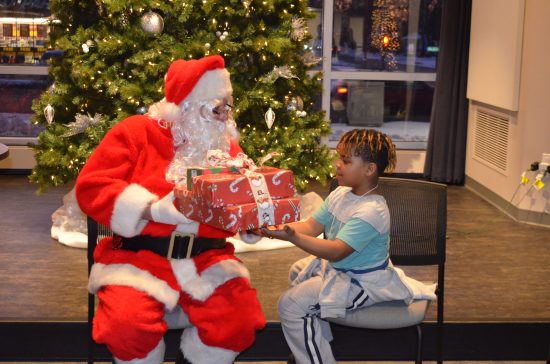
Events feature sensitive Santa, holiday lights, craft activities and more!
Are you looking for sensory-friendly events that the whole family can enjoy this holiday season?
There are a number of sensitive Santa opportunities, festivals and other holiday activities going on across Illinois.
Our Special Events page includes a roundup of opportunities designed specifically for youth with disabilities and special healthcare needs.
Here’s a look at some of the special programs available and other event guides for parts of the state:
- The Secret Sleigh Project coordinates volunteers to provide in-home Santa visits to children who are medically fragile nationwide. See our Secret Sleigh event listing for more details on how to request a visit.
- The National Federation of the Blind is offering letters from Santa and winter celebration letters in Braille to children who are blind or have low vision. The program is for children 10 years old and younger. Please complete the letter request form by Dec. 17. Letters are available in English or Spanish. If you have any questions, call (410) 659-9314, ext. 2236, or email education@nfb.org.
- The Santa Cares program from Autism Speaks and Cherry Hill Programs provides sensory-friendly Santa experiences in Illinois and the St. Louis area on Dec. 4. These visits are free. Keepsake photo packages will be available for purchase. Reservations are required. Visit the Santa Cares website for a complete list of Santa’s stops. Be sure to select “Santa Cares”, “Caring Santa” or “Sensitive Santa” when checking your location. (Note some event dates may vary. Please check your location to confirm your date and time.)
- For families in the Chicagoland area, Chicago Parent magazine provides a list that includes opportunities to visit with Santa and other events tailored to the needs of children with disabilities.
- In central Illinois, check out this list from ChambanaMoms.com for events within driving distance of the Champaign-Urbana area or this list of seasonal light displays and events from the Mahomet Daily.
- SpringfieldMoms.org’s seasonal guide provides a roundup of activities happening in the capital city area.
- Southern Illinois residents can find many fun, seasonal activities on SI Families’ event calendar. It’s packed with ideas including a drive-thru Santa event in Marion, the Lights Fantastic Parade in Carbondale and even a “Home Alone” drive-in movie event at Murphysboro High School.
- The animals at the Lincoln Park Zoo, St. Louis Zoo, and other zoos throughout Illinois are celebrating the season, too! Contact your local zoo to find out what’s happening and when.
Be sure to check our Special Events page often as we add more holiday activities to the list. If you know of a good sensory-friendly event to share, please email us at dscc@uic.edu.
Happy Holidays!
Please note, the University of Illinois Chicago’s Division of Specialized Care for Children (DSCC) is not involved in the organizing or scheduling of these holiday events. If you have questions about a specific event, please contact the event sponsor or organizer.
Share Your Feedback on the Nursing Allocation Process
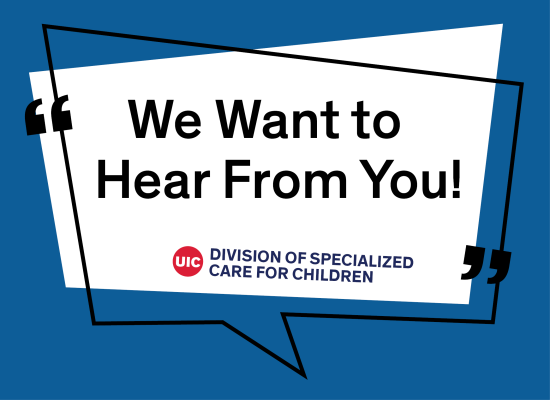
Help our Family Advisory Council recommend changes that can benefit Home Care Program participants and their families.
The Division of Specialized Care for Children (DSCC) helps coordinate and monitor in-home nursing for families through the Home Care Program.
The Illinois Department of Healthcare and Family Services (HFS) determines the number of approved nursing hours after reviewing the individual’s medical reports and medical needs.
Our Family Advisory Council (FAC) now wants to help families better understand the process for how HFS assigns nursing allocations. The FAC also wants to help HFS understand the unique needs and circumstances of Home Care families when deciding nursing allocations.
FAC Advocacy Chair Whitney Woodring is putting together a Nursing Allocation Workgroup to gather feedback on these issues. Whitney’s daughter Willa has received Home Care services since she was a baby. (See Willa’s Family Story for more details.)
Whitney hopes to speak with families across Illinois to learn about their experiences with nursing allocations and the appeal process.
You can email Whitney directly with feedback at w.woodring25@gmail.com.
Whitney would like to hear all input, including positive experiences with the process.
Your feedback will help Whitney and the FAC make recommendations for changes that can benefit as many participants as possible.
To learn more about the FAC, visit our Family Advisory Council page. Be sure to also join the FAC’s next open forum meeting on Nov. 10.
Need more information about nursing services and allocations?
Our Nursing Services Tip sheet gives an overview of Medicaid’s nursing services to help families in the Home Care Program take care of their child’s medical needs:
Our Home Care Appeal and Peer-to-Peer Review Tip Sheet explains how the review and determination of medical eligibility for Home Care services work:
- Appeal and Peer-to-Peer Review Tip Sheet in English
- Appeal and Peer-to-Peer Review Tip Sheet in Spanish
You can find these handouts and other helpful information for families on our Home Care Information Hub.
Medicaid Members – Update Your Address
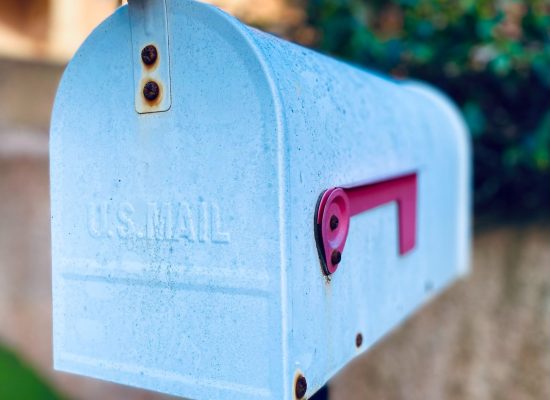
Don’t risk missing important paperwork and losing Medicaid coverage
Do you get health insurance through Medicaid?
Be sure your address is up-to-date so you don’t risk losing coverage.
The Illinois Department of Healthcare and Family Services (HFS) needs every Medicaid member to update their mailing address. This step can ensure you receive important paperwork about your benefits.
Medicaid pays for your health care, like visits to your doctor and your medicine. Updating your address can help you avoid surprises and get critical information about your insurance.
We urge all Division of Specialized Care for Children (DSCC) participant families who receive Medicaid to make sure their contact information is current.
You can update your address in several easy steps:
- Call the HFS hotline at (877) 805-5312 from 7:45 a.m. to 4:30 p.m. Monday through Friday
- Contact HFS via TTY at (877) 204-1012
- Fill out a quick online form at medicaid.illinois.gov.
To keep your Medicaid coverage, be sure to use an address where mail can always reach you.
For instructions in other languages, please visit HFS’ Address Update Messaging Toolkit webpage.
It’s been two years since HFS has asked Medicaid members to update their contact information. As the COVID-19 public health emergency continues, Medicaid members can stay insured without confirming all eligibility requirements.
Plans are underway to eventually end the public health emergency. An exact date is not yet known.
Once the date is set, HFS will mail important information about how to keep your Medicaid coverage.
Please update your address right away. The process is fast, easy and free.
We will share more details about the end of the public health emergency once they are available.
If you have questions or concerns, please contact your DSCC Care Coordinator. You can call our offices at (800) 322-3722.
DSCC Regional Manager Earns Outstanding Field Instructor Award
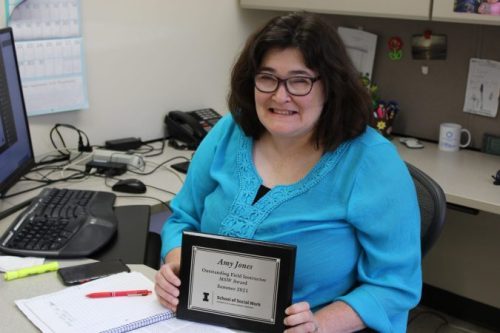
UIUC’s School of Social Work recognized Amy Jones for her dedication and excellent learning experience for interns
Sruthi Thinakkal says her internship with the University of Illinois Chicago’s Division of Specialized Care for Children (DSCC) shaped her as a social worker and taught her the meaning of true teamwork.
Amy Jones, Regional Manager of DSCC’s Olney and Marion regional offices, was an enthusiastic and motivating mentor throughout Sruthi’s experience.
Amy has now received the Outstanding Master of Social Work (MSW) Field Instructor Award for the summer 2021 semester. The honor is from the University of Illinois Champaign-Urbana’s (UIUC) School of Social Work.
“Receiving this award was such a nice surprise! I’m truly honored but never expected it,” Amy said.
The School of Social Work gives the award during each internship rotation to a field instructor who has provided exceptional teaching/mentoring for their MSW intern.
“Based on Sruthi’s nomination letter, it is apparent that (Amy is) dedicated to providing an excellent learning experience for the students, and the School of Social Work is very appreciative,” MSW Field Director Lindsey Trout said in an email announcing the award.
Sruthi nominated Amy for the award after spending two semesters with DSCC’s Marion and Olney offices in 2021. (You can read more about how Sruthi’s internship provided life-changing experiences and lessons.)
“It had been a little while since I’d submitted the nomination, and I’ve been so busy that I completely forgot,” Sruthi said. “It made me so happy! I could go on and on about how Amy shares information and is always willing to help others. It was such a nice surprise, but I just knew she would win!”
Sruthi now works in Chicago with the Rush Craniofacial Center team. She credits her internship with preparing her for a job she loves.
“I gained so many skills that have directly impacted my career,” Sruthi explained. “DSCC taught me so much about working in tune with families, the grief process, the importance of teamwork and listening, and how a monthly call can make such a difference in helping families feel supported and connected.”
Amy says interns aren’t the only ones who benefit.
“It’s a mix of seasoned and new that brings fresh ideas and different perspectives to the workplace,” Amy said. “It’s exciting to watch their growth and know that they’re building a ‘toolbox’ of skills that will serve them well as they move on in their careers. It’s equally rewarding learning from them along the way.”
The Olney and Marion regional offices have recently welcomed two new interns to their team.
“I’m looking forward to learning as much from them as they will from us,” Amy said. “I enjoy being able to talk about the world of social services and sharing about DSCC but It’s really a team effort. All of us work to partner with our families, to help them know about and connect with the services they need.”
Amy’s award has a place of honor in her office – and in her heart.
“The award isn’t just mine. It’s for all of us.”
Congratulations, Amy, on your well-deserved honor!
Formula Shortage Resources for Families
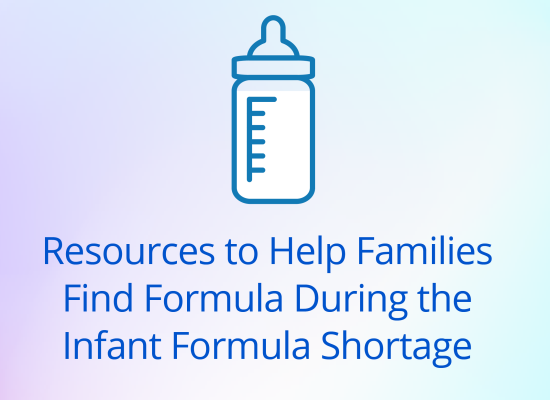
Helpful information and tips to find formula and keep children healthy
The infant formula shortage continues to affect families across the country.
Formula is not only important for babies’ nutrition but also for some young children, teens and adults with medical needs.
Several resources are available nationwide and here in Illinois to help families during the shortage:
- The U.S. Department of Health and Human Services (HHS) website has resources in a variety of languages to help families find infant formula during the shortage. These resources include information on safe substitutes, formula company contacts and community programs.
- The Illinois Department of Human Services (IDHS) has trained caseworkers to help families with formula questions. You can contact the IDHS Help Line at (800) 843-6154. The Help Line is primarily for Supplemental Nutrition Assistance Program (SNAP) and Women, Infants and Children (WIC) participants but is open to all Illinois residents.
- For Illinois WIC participants, a waiver now allows for flexibility in the size and type of formula available to buy with WIC benefits. More details are on IDHS’ “Having Trouble Finding Formula” page.
- Illinois WIC programs also provide a wide range of support for breastfeeding mothers and funds for healthy foods, including fresh fruits and vegetables. More information and updates can be found on the Illinois WIC website. Families can also call (217) 782-2166 for additional support
- HealthyChildren.org, the parenting website of the American Academy of Pediatrics, provides tips on finding baby formula during the shortage and what you may safely consider if you can’t find any. The site is updated regularly with helpful information and the latest guidance.
- The U.S. Food and Drug Administration (FDA) has released information on the international formulas that will soon be on store shelves in the United States. Some of these formulas have different mixing guidance and will require conversion from milliliters to ounces. The FDA has a “Tips for Preparing Imported Infant Formula” handout available to help. (The handout is also available in Spanish.)
Remember that you should not water down your baby’s formula to stretch it out. You also should not make formula at home or discard formula unless it is expired or part of the recall.
HHS notes that in most cases, you can feed your baby any brand of formula that is available.
If your child has special health needs, be sure to check with their doctor about medically appropriate and safe feeding alternatives. Your doctor may have samples in stock or know of other local organizations that can help.
Please contact your pediatrician for guidance on adjusting feeding practices and be sure to stay in touch about any issues or concerns with your child’s nutrition.
DSCC and State Health Department Partner to Improve In-Home Nursing Options for Families

A new licensure process for nursing agencies will help provide more options for children and adults in need of in-home nursing care
The nationwide nursing shortage has affected many Illinois families in need of in-home shift nursing care for their children with complex medical needs.
There is a constant demand for more in-home nursing care options in all parts of the state, both rural and urban.
The University of Illinois Chicago’s Division of Specialized Care for Children (DSCC) has partnered with the Illinois Department of Public Health (IDPH) to help meet this need and give families more nursing care options.
DSCC worked with IDPH to change how our enrolled nursing agencies are licensed to serve Illinois counties. Nursing agencies can now be licensed to serve all of Illinois instead of only individual counties.
This change should make it easier for nursing agencies to serve more parts of the state.
Before this change, nursing agencies could only operate within their approved service county area. Nursing agencies had to request approval for each county they wanted to serve.
This process made it difficult for nursing agencies to expand coverage to areas in need. Our participants who receive in-home shift nursing through the Home Care Program could only receive services from nursing agencies licensed for their specific county.
Now all nursing agencies who are licensed and enrolled with DSCC in good standing may serve all Home Care participants in any part of the state.
This broader statewide approach to nursing agency licenses will offer more available nursing options to our participant families.
Please note that each nursing agency must decide if it wants to expand its service area to other parts of the state. This decision is based on nursing staff availability.
We are thankful for IDPH’s partnership to help meet this important need for our participants and their families!
Public Comment Period for MFTD Waiver Updates
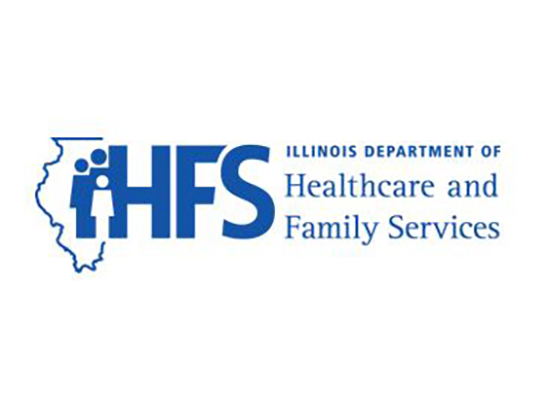
The deadline to share feedback is June 30.
Families have an opportunity to share feedback on proposed updates to the Medicaid Home and Community-Based Services Waiver for Medically Fragile, Technology Dependent (MFTD) Children.
The Illinois Department of Healthcare and Family Services (HFS) is the Medicaid agency responsible for the MFTD waiver. Many families in the Home Care Program have children who receive services through the MFTD waiver.
HFS must renew Illinois’ MFTD waiver every five years. HFS and the Division of Specialized Care for Children (DSCC) have partnered to make several changes as part of this year’s renewal process.
To review the full list of waiver updates, you can:
- See page 2 of the electronic copy of the proposed renewal application.
- Review a hard copy at HFS’ offices at:
- 201 South Grand Ave. E.,
Springfield, IL 62763 - 401 S. Clinton
Chicago, IL 60607
- 201 South Grand Ave. E.,
HFS now seeks public input on these changes. (You can read the public comment notice on the HFS website.)
The deadline to provide feedback is June 30.
You can share your feedback in two ways:
- Via email to HFS.HCBSWaiver@illinois.gov
- Via mail to the Illinois Department of Healthcare and Family Services, Attention: Waiver Operations Management, 201 South Grand Ave. E., 2FL, Springfield, IL 62763
HFS will send your comments to the federal Centers for Medicare and Medicaid Services as part of the waiver approval process.
If you have questions, please contact HFS’s Waiver Operations Management Unit at (217) 524-4148 or (844) 528-8444.
Resources for Special Needs Families During COVID-19 Pandemic
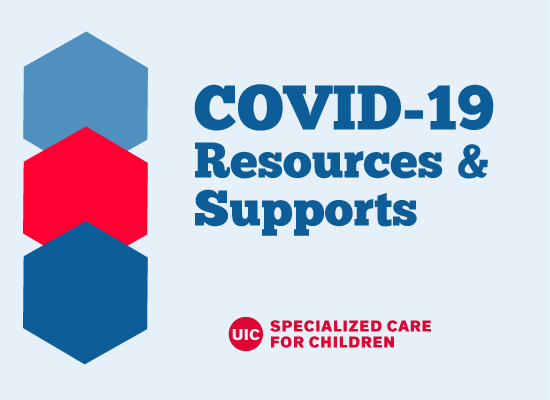
Meals, financial help, health tips, condition-specific information, learning tools and more to support families of children with special healthcare needs.
Parents and caregivers have a lot to juggle as they care for a child with special healthcare needs amid the coronavirus disease 2019 (COVID-19) outbreak.
The uncertainty and required social distancing can pose unique challenges, questions and concerns.
The University of Illinois Chicago’s Division of Specialized Care for Children (DSCC)’s team of professionals is here to help.
We’ve compiled a list of resources to help families find the right support: https://dscc.uic.edu/browse-resources/covid-resources/.
The list includes places offering free meals, utility assistance, free Wi-Fi, health tips, educational websites, activities during social distancing and condition-specific information.
Resources are also broken down by our regional office locations.
We’ll continue to update this list as new resources become available. Please check back often for the latest information.
If you have a resource to add to our list, please email us at dscc@uic.edu.


